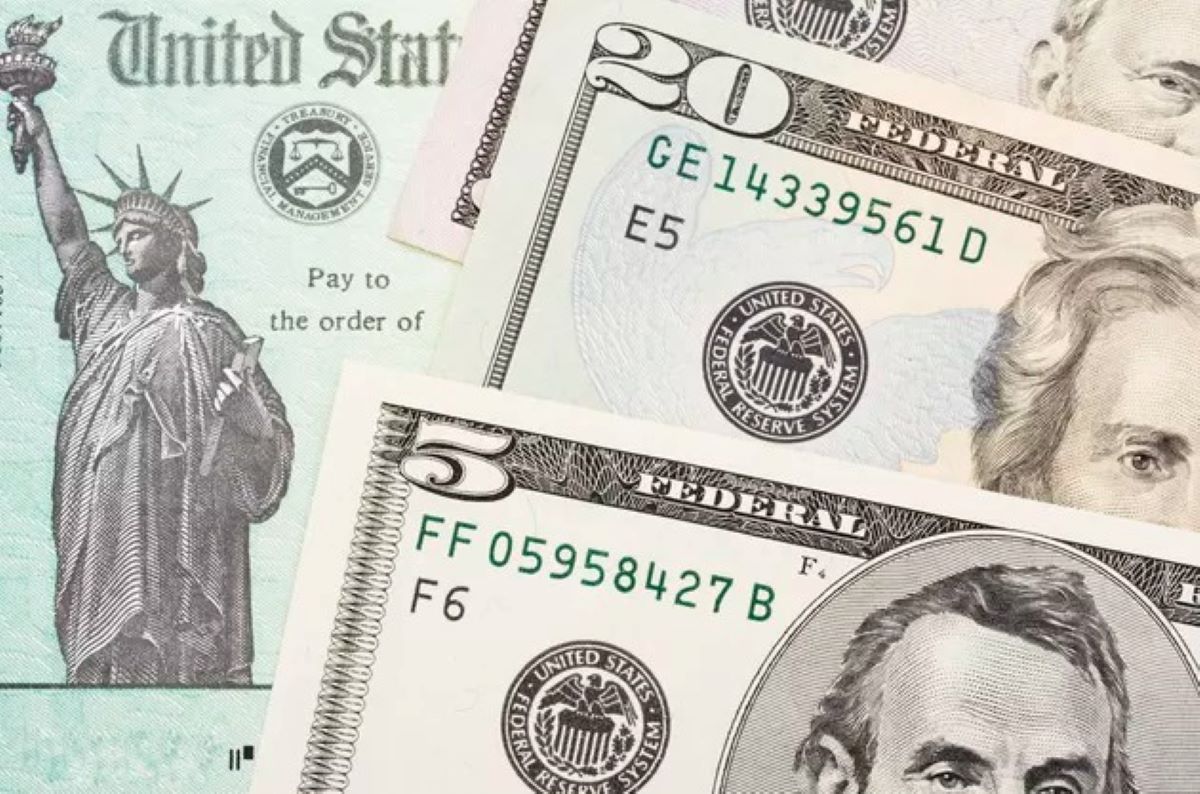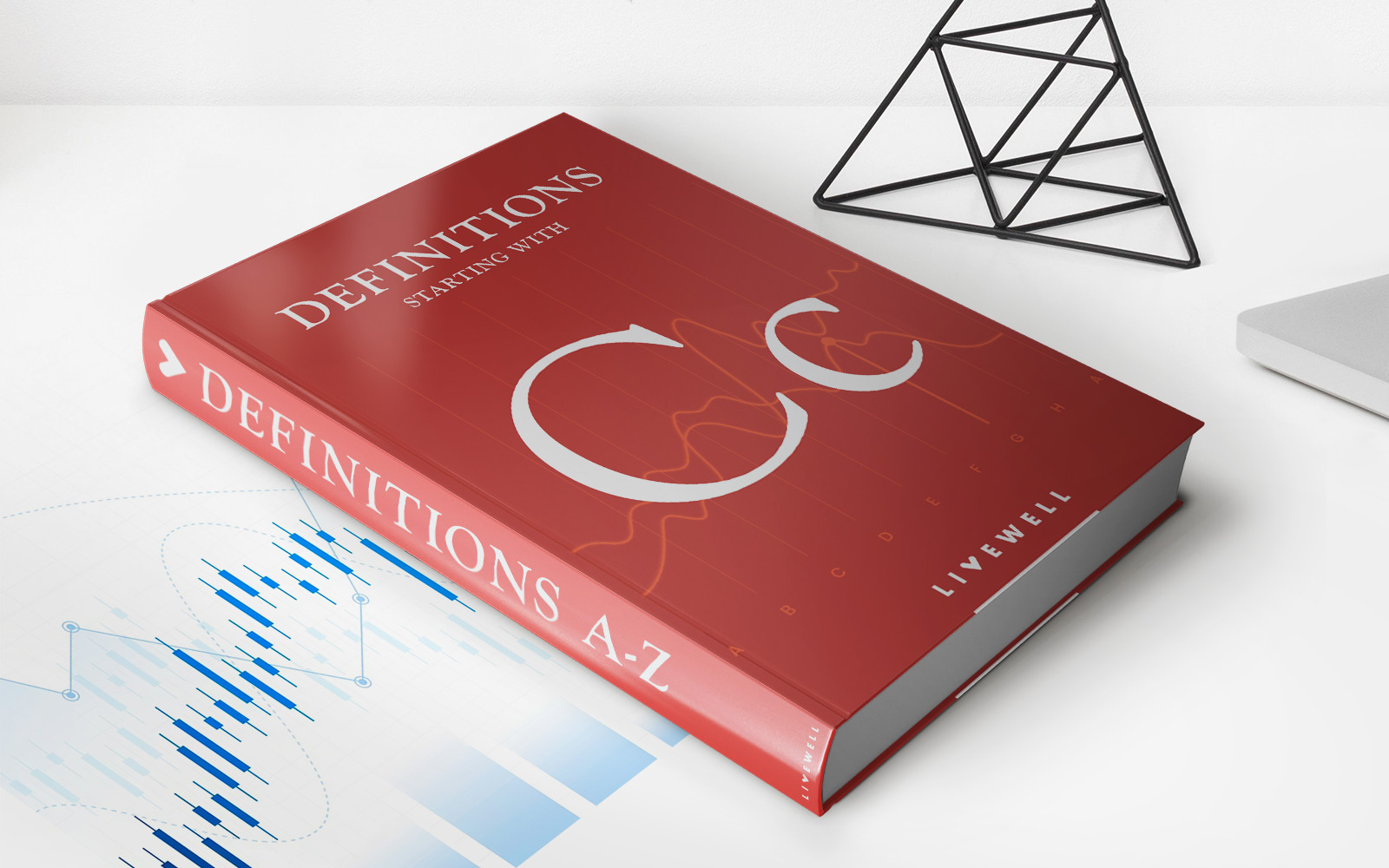

Finance
What Happens If You Bounce A Check To The IRS?
Modified: February 21, 2024
Discover the consequences of bouncing a check to the IRS and how it impacts your financial situation. Get the facts on what happens when you fail to pay your taxes on time.
(Many of the links in this article redirect to a specific reviewed product. Your purchase of these products through affiliate links helps to generate commission for LiveWell, at no extra cost. Learn more)
Table of Contents
Introduction
Dealing with finances can be a complex and sometimes daunting task. From managing expenses to paying taxes, it’s essential to stay on top of your financial responsibilities. However, there may be times when financial setbacks occur, such as bouncing a check. While this can be an unfortunate occurrence, it becomes even more significant when the check is intended for the Internal Revenue Service (IRS).
Bouncing a check to the IRS is a serious matter that can have various consequences. The IRS is responsible for collecting federal taxes, and any issues related to bounced checks are treated with utmost importance. Understanding the implications of such an act can help you navigate these challenges and minimize potential penalties.
Throughout this article, we will delve into the consequences of bouncing a check to the IRS, the penalties you may face, and ways to resolve the situation. By gaining insight into these matters, you can take the necessary steps to rectify the situation and prevent it from happening again in the future.
It is important to note that this article is for informational purposes only and does not constitute legal advice. If you find yourself in a situation where you have bounced a check to the IRS, it is highly recommended to seek professional assistance from a tax attorney or a certified public accountant (CPA).
What is a Bounced Check?
A bounced check, also known as a “returned check” or “NSF (non-sufficient funds) check,” occurs when there are not enough funds in a bank account to cover the amount of the check that was written. Essentially, it means that the bank is unable to honor the payment requested by the check.
Here’s how the process typically unfolds:
- The check recipient deposits or cashes the check.
- The recipient’s bank attempts to process the check.
- If there are insufficient funds in the account, the check will be returned unpaid.
- The bank charges a fee to the account holder for the bounced check.
When it comes specifically to bouncing a check to the IRS, it means that the payment you intended to make to the IRS, whether it be for taxes owed or another form of payment, is not honored due to insufficient funds in your bank account.
It is important to keep in mind that the IRS operates differently from a typical recipient of a bounced check. They have specific procedures in place to address such situations, and failing to take appropriate action can lead to further consequences.
If you find yourself in a situation where a check written to the IRS has bounced, it is crucial to address the issue promptly and work towards resolving it to avoid escalating penalties and legal actions.
Consequences of Bouncing a Check to the IRS
When a check written to the IRS bounces, the consequences can be significant. The IRS takes the issue seriously and has measures in place to ensure that taxpayers fulfill their financial obligations. Here are some of the potential consequences you may face if you bounce a check to the IRS:
- Penalties: Bouncing a check to the IRS can result in incurring penalties. These penalties are separate from any penalties you may already owe for unpaid taxes. The amount of the penalty can vary and is typically a percentage of the bounced check amount.
- Interest on Outstanding Balances: In addition to penalties, the IRS can also charge interest on the outstanding balance related to the bounced check. This interest will continue to accrue until the debt is fully paid.
- Legal Actions: If the bounced check remains unresolved, the IRS has the authority to take legal actions against you. This can include filing a lawsuit to collect the debt or placing a lien on your property.
- Collection Efforts: The IRS has various collection methods at its disposal to recover the debt owed. This can involve garnishing your wages, seizing your assets, or offsetting any future tax refunds to satisfy the outstanding balance.
- Damaged Credit: Bouncing a check to the IRS can also negatively impact your credit score. The IRS may report the debt to credit bureaus, leading to a lower credit score and making it more challenging to obtain credit in the future.
It is crucial to understand that these consequences can escalate if prompt action is not taken to address the bounced check. Ignoring the issue will not make it go away, and it is in your best interest to resolve the matter as soon as possible.
Next, we will explore the specific penalties associated with bouncing a check to the IRS and what you can do to minimize the impact of this situation on your financial well-being.
Penalties for Bounced Checks to the IRS
Bouncing a check to the IRS can lead to various penalties on top of any existing tax penalties you may owe. These penalties are distinct from the interest charges and collection efforts that the IRS can pursue. Here are some common penalties you may incur if you bounce a check to the IRS:
- Bounced Check Penalty: The IRS imposes a penalty based on a percentage of the bounced check amount. The exact percentage can vary, but it is typically around 2% to 5% of the check value.
- Failure to Pay Penalty: If the check was intended to pay outstanding taxes, bouncing the check can trigger the failure to pay penalty. This penalty is typically 0.5% of the unpaid tax amount for each month the payment is late, up to a maximum of 25% of the total tax owed.
- Interest Charges: In addition to penalties, the IRS will also charge interest on the outstanding balance related to the bounced check. The interest rate is determined quarterly and is based on the federal short-term rate plus 3%. The interest accrues daily and compounds.
It’s important to note that these penalties can add up quickly, especially if the bounced check remains unresolved for an extended period. To minimize the impact of these penalties, it’s essential to take swift action to address the situation and make arrangements to pay the owed amount.
If you’re unable to pay the full amount immediately, the IRS may be willing to work with you to set up a payment plan or negotiate a settlement. However, it’s crucial to contact the IRS as soon as possible to discuss your options and avoid further penalties and collection actions.
In the next section, we will explore the interest charges that can accumulate on unpaid tax debts and the potential consequences of failing to address the situation promptly.
Interest on Unpaid Tax Debts
When a check to the IRS bounces and results in unpaid tax debts, the IRS will impose interest charges on the outstanding balance. These interest charges are in addition to any penalties that may have been assessed. It’s important to understand how interest is calculated and the potential impact it can have on your overall debt.
The interest rate applied to unpaid tax debts is determined quarterly by the IRS. It is based on the federal short-term rate plus 3%. The interest accrues daily and compounds, which means that the interest amount itself becomes part of the total balance on which new interest is calculated.
It’s important to note that interest charges can accumulate quickly, especially if the unpaid tax debts are not resolved promptly. The longer the debt remains unpaid, the more interest will accrue, increasing the overall amount you owe to the IRS.
One way to mitigate the impact of interest charges is to pay off the debt as soon as possible. By making prompt payment arrangements or settling the debt, you can stop the interest from continuing to accumulate.
Additionally, if you are unable to pay the full amount, the IRS offers several options to help manage the debt, such as installment agreements and offers in compromise. These options allow you to make regular payments and potentially reduce the overall debt owed. However, it’s important to note that entering into any of these agreements may still incur interest charges on the remaining balance.
Overall, it’s crucial to address unpaid tax debts promptly to minimize the impact of interest charges. Ignoring the debt or failing to make payment arrangements can lead to escalating interest charges and additional penalties, making it even more challenging to become financially stable.
In the next section, we will explore the potential legal actions and collection efforts that the IRS may take if a bounced check and unpaid tax debts remain unresolved.
Legal Actions and Collection Efforts
When a bounced check to the IRS leads to unpaid tax debts, the IRS has the authority to take legal actions and implement collection efforts to recover the amount owed. These actions can have serious implications for your financial well-being and should be taken seriously. Here are some potential legal actions and collection efforts the IRS may pursue:
- Filing a Lawsuit: If the bounced check and unpaid tax debts remain unresolved, the IRS has the option to file a lawsuit against you. This legal action can result in a court judgment requiring you to pay the outstanding balance, including any additional penalties and interest.
- Bank Levy: To collect the debt owed, the IRS may place a bank levy, which allows them to seize funds from your bank account to satisfy the outstanding balance. The bank levy can be a one-time event or continuous until the debt is fully paid.
- Wage Garnishment: The IRS can also initiate wage garnishment, which means they can legally require your employer to withhold a portion of your wages to satisfy the unpaid tax debts. This can significantly impact your take-home pay and financial stability.
- Asset Seizure: In extreme cases, if the debt remains unresolved, the IRS may seize your assets, such as real estate, vehicles, or other valuable properties, to satisfy the outstanding balance. This can have severe consequences for your financial situation and overall well-being.
- Offsetting Tax Refunds: If you have any future tax refunds due, the IRS can use the refund to offset the unpaid tax debt. This means that instead of receiving a refund, it will be applied towards your outstanding balance.
It’s essential to address the bounced check and unpaid tax debts as soon as possible to minimize the likelihood of these legal actions and collection efforts. If you’re unable to pay the full amount, reaching out to the IRS to discuss payment options, such as installment agreements or offers in compromise, can help prevent further escalation.
Remember, failing to respond to the IRS or ignoring the situation will only exacerbate the consequences. Seeking professional advice from a tax attorney or a certified public accountant (CPA) can provide guidance on navigating the legal actions and collection efforts and help you find a resolution.
Next, we will explore the various options available for resolving a bounced check to the IRS and unpaid tax debts.
Options for Resolving Bounced Check to the IRS
Resolving a bounced check to the IRS and the resulting unpaid tax debts requires taking prompt action to address the issue. Although the situation may seem daunting, several options are available to help you navigate this challenging financial scenario. Here are some options for resolving a bounced check to the IRS:
- Contact the IRS: The first step is to reach out to the IRS and inform them about the bounced check and the circumstances surrounding it. You can call their helpline or visit your local IRS office to discuss the situation. The IRS staff can provide guidance on the next steps and help you understand your payment options.
- Payment Arrangements: If you are unable to pay the full amount immediately, the IRS may allow you to set up a payment plan. This option allows you to make monthly installments over an agreed-upon period until the debt is fully paid. Keep in mind that interest and penalties may continue to accrue during the payment plan period.
- Offers in Compromise: In some cases, the IRS may accept a settlement for less than the total amount owed through an offer in compromise. This option is available if you can prove that paying the full amount would cause undue financial hardship. It’s important to note that the IRS carefully evaluates offers in compromise and acceptance is not guaranteed.
- Seek Professional Assistance: If you’re unsure about the best course of action or find the process overwhelming, seeking professional assistance from a tax attorney or a certified public accountant (CPA) can be beneficial. They can provide expert guidance, negotiate with the IRS on your behalf, and help you navigate the complexities of resolving the bounced check and unpaid tax debts.
Regardless of the option you choose, it’s crucial to address the issue promptly and honestly communicate with the IRS. Ignoring the situation or failing to make arrangements can have serious consequences, including additional penalties, interest charges, and potential legal actions.
Remember, each individual’s financial situation is unique, and the best approach may vary. It’s essential to evaluate your circumstances and determine the option that aligns with your financial capabilities and goals.
In the final section, we will explore some essential tips on how to avoid bouncing a check to the IRS in the future.
How to Avoid Bouncing a Check to the IRS
Bouncing a check to the IRS can have serious consequences, but there are steps you can take to avoid finding yourself in this situation. By being proactive and implementing good financial practices, you can minimize the risk of bouncing a check to the IRS. Here are some essential tips to help you avoid this problem:
- Maintain Sufficient Funds: One of the most important steps is to ensure that you have enough funds in your bank account to cover any payments you make to the IRS. Regularly monitor your account balance and keep track of your expenses to avoid unexpected shortfalls.
- Create a Budget: Establishing a budget can help you effectively manage your finances and allocate funds towards tax payments. By identifying your income and expenses, you can set aside the necessary funds to meet your tax obligations and reduce the risk of bouncing a check.
- Double-Check the Amount and Information: Before writing a check to the IRS, double-check the amount and verify that all the information is accurate. Simple errors in writing the check can lead to complications and potential bouncing if the IRS cannot process it correctly.
- Be Aware of Deadlines: Stay informed about tax deadlines and avoid waiting until the last minute to make your payment. Planning ahead and submitting your payment well before the due date can help ensure that you have enough time to address any potential issues that may arise.
- Consider Electronic Payments: Instead of relying solely on paper checks, consider making electronic payments to the IRS. This can help expedite the process and reduce the risk of errors or delays associated with traditional checks. Electronic payment options include direct debit, credit/debit card payments, and online payment systems.
- Keep Records: Maintain organized records of your tax payments and any correspondence with the IRS. This will help you track your payments, provide proof if any issues arise, and make it easier to resolve any discrepancies or inquiries from the IRS.
- Seek Professional Advice: If you’re unsure about your tax obligations or need assistance in managing your finances, consider seeking professional advice from a tax professional or financial advisor. They can provide guidance tailored to your specific situation, helping you navigate complex tax matters and avoid potential pitfalls.
By implementing these tips and staying vigilant in managing your finances, you can significantly reduce the likelihood of bouncing a check to the IRS. Taking proactive steps to stay organized and meet your tax obligations will not only protect you from penalties and legal actions but also contribute to your overall financial stability.
Let’s conclude the article in the next section.
Conclusion
Bouncing a check to the IRS can have serious consequences, including penalties, interest charges, and potential legal actions. It’s important to address the issue promptly and take steps to resolve the unpaid tax debts to minimize the impact on your financial well-being.
In this article, we’ve explored the various consequences of bouncing a check to the IRS, including penalties, interest on unpaid tax debts, and potential legal actions and collection efforts. We’ve also discussed the options available for resolving the issue, such as payment arrangements and offers in compromise.
To avoid bouncing a check to the IRS in the future, it is crucial to maintain sufficient funds in your bank account, create a budget, double-check the amount and information on checks, be aware of tax deadlines, consider electronic payments, keep organized records, and seek professional advice if needed.
Remember, if you find yourself in a situation where you have bounced a check to the IRS, it’s important to act promptly. Contact the IRS, discuss your options, and work towards a resolution. Ignoring the problem will only lead to further complications and potential financial hardships.
Lastly, this article serves as a general guide and does not constitute legal advice. If you require personalized advice or assistance, it is recommended to consult a tax attorney or a certified public accountant (CPA) who can provide expert guidance based on your specific circumstances.
By being proactive and mindful of your financial responsibilities, you can navigate the challenges of managing your tax payments, avoid bouncing a check to the IRS, and maintain your financial sanity.














